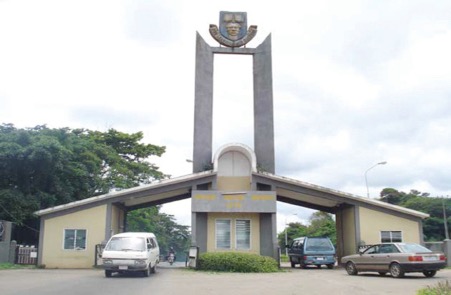The Chief Medical Director (CMD) of Obafemi Awolowo University Teaching Hospital (OAUTH), Osun State, Prof. John Okeniyi, has taken a bold stand against sexual harassment within the hospital.
He announced plans to remove beds stationed in various offices to curb incidents of harassment of female staff.
Prof. Okeniyi disclosed this during a press briefing at the hospital complex in Ile-Ife while giving a progress report on his first year in office.
He explained that having beds in offices, particularly under the guise of night shifts, could provoke sexual misconduct.
He vowed to remove all such beds as part of a broader strategy to protect staff members from harassment.
“The night shift is not meant for sleeping but for people to do their job and leave,” Okeniyi said. He added that the presence of beds in offices was creating an environment where inappropriate behavior could occur.
“Having beds in offices could provoke sexual harassment. From now, I will personally supervise the removal of beds from offices,” he declared.
Sexual harassment in the workplace has been a growing concern in Nigeria, especially in institutions where there is an imbalance of power between senior and junior staff. Okeniyi made it clear that his administration is committed to creating a safe and professional environment for all employees at OAUTH.
As part of this commitment, the institution has enacted an anti-sexual harassment law. Okeniyi emphasised that ignorance of the law would no longer be accepted as an excuse for inappropriate behavior. “The laws are clear, which we have brought to the fore for the notice of the people, ‘thou shall not sexually harass’,” he stated.
The CMD’s message was straightforward: anyone found guilty of sexual harassment will face serious consequences. “If anybody does that, we will punish him and will not sweep it under the carpet,” Okeniyi warned. He added that the hospital would not hesitate to make public examples of offenders, as a deterrent to others.
“Once we start punishing people, others will be exposed subsequently,” he said, hinting at a plan to establish an online “wall of shame” where the names of offenders would be displayed. This public platform, Okeniyi explained, would ensure that friends, family members, and the wider community could see the consequences of sexual harassment. “It will be there for your friends, children, and spouse to see forever,” he added.
Okeniyi also expressed his commitment to empowering staff to speak up against sexual harassment. He explained that the hospital’s SERVICOM unit, which is responsible for service complaints and monitoring, has been strengthened to address issues of harassment. “I have also empowered SERVICOM people to say something,” he said. This step, he added, was necessary because many employees had been “groaning from sexual harassment” but were previously afraid to speak out.
“Now they know that if they talk, there is a listening ear and action would be taken,” Okeniyi assured staff. He explained that this approach is intended to create a culture where victims feel safe and confident in reporting harassment, knowing that the hospital management is committed to addressing their concerns. Sexual harassment remains a significant problem in Nigeria’s workspaces, including academic and medical institutions.

